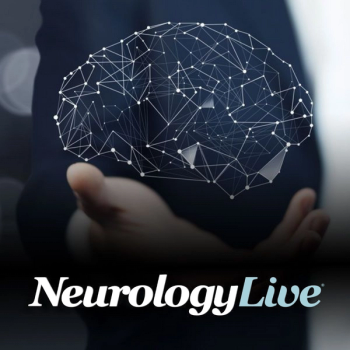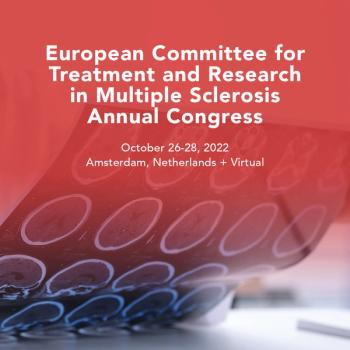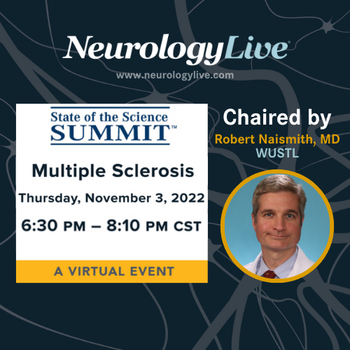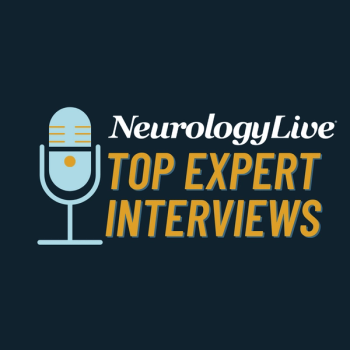
Test your neurology knowledge with NeurologyLive®'s weekly quiz series, featuring questions on a variety of clinical and historical neurology topics. This week's topic is headache and migraine.

Matt Hoffman, Editorial Director for NeurologyLive, has covered medical news for MJH Life Sciences, NeurologyLive’s parent company, since 2017. He executive produces the NeurologyLive Mind Moments® podcast, and hosted the Medical World News show Deep Dive. Follow him on Twitter @byMattHoffman or email him at [email protected]

Test your neurology knowledge with NeurologyLive®'s weekly quiz series, featuring questions on a variety of clinical and historical neurology topics. This week's topic is headache and migraine.

The brain monitoring platform can be used in a number of settings, including the ICU and doctor’s offices, to monitor and detect cognitive decline related to neurodegenerative disease, as well as screening in clinical trials.

Mind Moments®, a podcast from NeurologyLive®, brings you exclusive interviews with Darin Okuda, MD; Federica Picariello, PhD; Brenda Banwell, MD; Riley Bove, MD; Tomas Kalincik, MD, PhD; and Marisa McGinley, DO. [LISTEN TIME: 34 minutes]

As patients with ALS may have altered taste perception and have expressed that bitterness is associated with AMX0035 (Relyvrio; Amylyx) administration, a number of coping strategies have suggested a workaround to ensure treatment adherence and effectiveness.

Test your neurology knowledge with NeurologyLive®'s weekly quiz series, featuring questions on a variety of clinical and historical neurology topics. This week's topic is epilepsy and seizure disorders.

AT-GAA, an Amicus Therapeutics treatment for late-onset Pompe disease consists of miglustat, an orally administered stabilizing agent, in combination with cipaglucosidase alfa, an infusion enzyme-replacing component.

In a late-breaking presentation in ECTRIMS, data from the MSBase international registry was suggestive of higher disability accumulation risk compared with those who did not experience relapse, in both treated and untreated patients with MS.

After preliminary data suggested that humoral response may be delayed among those vaccinated against COVID-19 treated with ocrelizumab, new data from the ECTRIMS Congress suggest a third booster dose can revive such response safely.

Data from the CLARIFY-MS study showed significant improvements in Multiple Sclerosis Quality of Life-54 physical and mental composite scores, with consistent safety and tolerability among patients with MS.

In a small real-world cohort, annualized relapse rates were reduced for patients with multiple sclerosis who switched to cladribine (Mavenclad; EMD Serono) from ocrelizumab (Ocrevus; Genentech), natalizumab (Tysabri; Biogen), and alemtuzumab (Lemtrada; Sanofi Genzyme).

The 2022 Congress of the European Committee for Treatment and Research in Multiple Sclerosis will take place in Amsterdam, the Netherlands, from October 26 to 28, and is expected to feature almost 250 presenters.

Test your neurology knowledge with NeurologyLive®'s weekly quiz series, featuring questions on a variety of clinical and historical neurology topics. This week's topic is the history of the European Committee for Treatment and Research in Multiple Sclerosis.

Mind Moments®, a podcast from NeurologyLive®, brings you exclusive interviews with Stephen Krieger, MD; Richard Isaacson, MD; and Jessica Ailani, MD. [LISTEN TIME: 24 minutes]

Chaired by Robert T. Naismith, MD, this NeurologyLive® State of the Science Summit will be held virtually at 6:30 PM CST on November 3, 2022. Register for free now!

Test your neurology knowledge with NeurologyLive®'s weekly quiz series, featuring questions on a variety of clinical and historical neurology topics. This week's topic is Alzheimer disease and dementia.

The NDA for the Supernus therapy, supported by data from the phase 3 TOLEDO study in patients with Parkinson disease, will require additional information and 6 months of further review. No additional efficacy or safety studies are required.

Test your neurology knowledge with NeurologyLive®'s weekly quiz series, featuring questions on a variety of clinical and historical neurology topics. This week's topic is insomnia.

Mind Moments®, a podcast from NeurologyLive®, brings you an exclusive interview with Yuri Maricich, MD, MBA. [LISTEN TIME: 30 minutes]

Expert clinicians offer their perspectives on developmental milestones for children, the NMSOD patient perspective, effective treatments for insomnia, ALS, diabetic and inflammatory neuropathies, and lecanemab in early Alzheimer disease.

Catch up on any of the neurology news headlines you may have missed over the course of the last month, compiled all into one place by the NeurologyLive® team.

Test your neurology knowledge with NeurologyLive®'s weekly quiz series, featuring questions on a variety of clinical and historical neurology topics. This week's topic is general neurology, related to the recent 4th Annual International Congress on the Future of Neurology®.

Although data from the EMSES study failed to reveal a reduction in relapse rates or global brain atrophy, half of the important motor-related tracts and nuclei observed displayed higher structural integrity in exercise patients.

The investigational treatment from Eisai and Biogen significantly reduced the Clinical Dementia Rating-Sum of Boxes scores among patients with early AD, with safety and ARIA-E and ARIA-H incidence as expected.

Test your neurology knowledge with NeurologyLive®'s weekly quiz series, featuring questions on a variety of clinical and historical neurology topics. This week's topic is the history of the American Association of Neuromuscular & Electrodiagnostic Medicine.

Mind Moments®, a podcast from NeurologyLive®, brings you an exclusive interview with Ambereen Mehta, MD, MPH. [LISTEN TIME: 40 minutes]

The Mapi Pharma treatment, administered intramuscularly at 40 mg, reduced annualized relapse rates among a population of patients with relapsing multiple sclerosis. Secondary outcomes are still being analyzed.

The phase 3 study, paused at US sites by the FDA, seeks to enroll 154 individuals with generalized myasthenia gravis, both seropositive and seronegative.

A single, 500-mg intravenous dose of rituximab in individuals with new-onset generalized myasthenia gravis reduced the risk of disease manifestation and the need for rescue medications.

Study investigator Jeffrey L. Neul, MD, PhD, offered his perspective on the current understanding of trofinetide (Acadia Pharmaceuticals) and its potential in Rett syndrome if approved by the FDA in the coming months.

Nicoline Schiess, MD, MPH, and colleagues offer insight into the recent publication of the World Health Organization’s 6 action steps aimed at addressing global disparities in individuals with Parkinson disease.